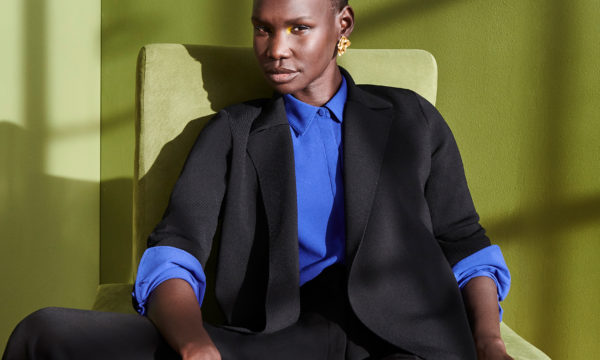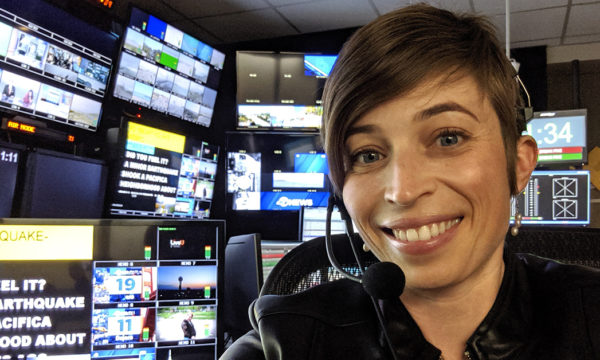Tasha Eurich Has News for You: You’re Not as Self-Aware as You Think
November 21, 2017 | Filed in: Your Brain
Reading organizational psychologist Tasha Eurich’s new book Insight: Why We’re Not as Self-Aware as We Think, and How Seeing Ourselves Clearly Helps Us Succeed at Work and in Life, initially feels a bit like taking a cold shower on a winter day. Her thesis is that most of us (that’s right, most) have no idea how our behavior affects others—and that’s a big problem. The good news is that this dose of harsh reality is rather freeing, in that it creates the opportunity for improvement. We caught up with her to talk about how to improve a skill that (irony alert) you may not even be aware you lack. We bet after reading this, you’ll want to host your very own Dinner of Truth: an exercise in which you gather close family or friends and ask them tough questions designed to get honest feedback on what they think of you—and how you make them feel. Read on to learn more.
Have we lost the ability to understand how we come off to other people? In other words, is it possible to be self-aware in the age of the social media echo chamber?
What we’ve found in researching our unicorns—highly self-aware people who didn’t start out that way and have trained themselves in this skill—is that they actually spend more time on average on social media than everybody else. At first when I found that out, I thought, “Oh my gosh, I’ve done my analyses wrong.” I did them over and over and over, and that was the result we kept getting—but the hours they were clocking on social media were focused on completely different things. Most of us (and I put myself in this category) use social media as a megaphone for whatever it is we’re doing that day, or whatever it is we’ve accomplished, or to let everyone know how great our vacation was. But what our unicorns did was use social media as a true tool to connect with other people, and to enhance others’ lives. For instance, instead of posting a picture of the award they just won at work, they would post a picture of a beautiful sunset, because they thought that beautiful sunset would make someone’s day better. It’s a powerful difference.
You write about how the key to cultivating self-awareness is to get honest feedback from the people around you, which sounds extremely scary. How can we get more comfortable with this idea?
It’s still nerve-wracking to me to sit down with a friend and ask, “Why are you friends with me?” That moment of pause before they respond—it doesn’t matter that they might be about to say something positive, you still get this feeling of, “Oh my god, what am I about to learn about myself?” It’s true that we’re not as comfortable saying, “What annoys you about me?” which is what I encourage people to ask at a ‘Dinner of Truth.’
But what always surprises me about the Dinner of Truth is that what I hear is never as bad as I think it will be. I think we sometimes expect our friends to say, “Secretly I’ve hated you this whole time.” But it’s always really small stuff. I did it once with a good friend of mine who’s a baby boomer, and he said, “Well, I love you in person, but I really don’t like you online.” And I thought, “Well, that’s really good feedback.” It’s not an indictment of who I am; it’s pointing out a behavior that I could be more aware of.
But aren’t those things hard to hear?
It’s actually surprisingly affirming, both for you and the relationship. People don’t believe me until they try it themselves, and then they come back and they’re like, “Oh my god, it was great!” Someone in our Facebook group said that she did that exercise with her eight-year-old son, and he said, “What is most annoying to me, Mommy, is that you never take enough time for yourself, and I’m really worried about you.”
Inevitably, we’re going to learn things about ourselves that we don’t love, but it’s just as likely, if not more likely for women, that we’re going to learn things about ourselves that we’re doing incredibly well that we didn’t have an appreciation of before.
Why do you think we have engineered a society where asking for feedback is such a radical, unusual act?
I think it’s a modern manifestation of an age-old problem: Back when human beings were hunter-gatherers and we were literally working in groups to survive, there was this idea that if you did anything to rock the boat with the group, there was a real possibility that you would be ostracized. There’s actually evidence that social isolation and social rejection activate the same parts of our brain that physical pain does. We are programmed to be very aware of that as a tool of survival. What that means is two things:
First, we want to know how people see us, but we don’t ask for that feedback because we’re worried that they won’t see us as a valuable member of the group. And second, other people don’t tell us when we’re doing something wrong because they don’t want to upset the apple cart either. Our unicorns—our highly self-aware people— actually recognize this phenomenon really well. They don’t love getting critical feedback. One of them once said to me, “Are you kidding me? I hate hearing that I’m not perfect!” But they understand that they have to push through that. They know that there’s something good on the other side of that fear.
How can we avoid feeling discouraged in the process of becoming more self-aware?
For women especially, we put all this pressure on ourselves to immediately develop a skill or immediately improve on something or change our approach, and what I learned from our unicorns was that they don’t make grand self-awareness gestures. Instead, they focus every day on learning a little bit more about themselves. What is also so stunning to me is that they are the most self-aware people out there, and they work the hardest at it. It’s kind of like being a dog chasing a car—you’re never going to get the car, but it doesn’t mean that you’re not going to run miles and miles, and cover a lot of ground. I think it’s about getting small wins over time, and then you can look back and say, “Where was I a year ago on my self-awareness journey, and where am I now? Where do I want to go in the future?”
I think letting go of the desire or goal to become perfectly self-aware allows us to actually become more self-aware, right off the bat.
What about dealing with people who are not only not self-aware, but unwilling to work on it?
What I have discovered in my research and working with highly self-aware people is they have the wisdom to know that other people’s self-awareness journeys are not theirs to navigate. At the end of the day, our own reactions are what we have the most control over.
How can I get started?
A lot of times, when people think about self-awareness for the first time, their natural inclination is to ask, “Well, how self-aware am I?” So we’ve actually developed an insight quiz that’s a quick way to gauge where you are on this spectrum. It’s about 14 questions, and it’s a great way to jump-start the process.
Tasha wears the Casey dress. Get it here.
Photo by The Art of









